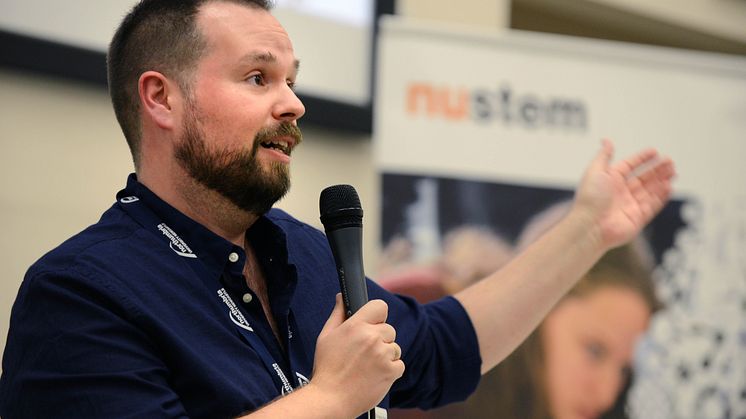
Press release -
Funding for new research to end FGM
Academics at Northumbria University, Newcastle have been awarded more than £350,000 to carry out research which aims to eradicate the practice of Female Genital Mutilation (FGM).
The team, led by Professor Ngianga-Bakwin Kandala, will analyse statistical data collected over the last 20 years to determine the main reasons behind the practice and whether it is has declined in that time.
Their work is being funded by the Population Council, with the announcement coinciding with the International Day of Zero Tolerance for Female Genital Mutilation on Tuesday 6 February – an annual event established by the United Nations to raise awareness of FGM.
Professor Kandala is a world expert in statistical analysis and has spent the last 15 years working with the World Health Organisation, UNICEF and the UK’s Department for International Development (DFID) to map global health and disease in developing countries.
As well as identifying potential FGM hotspots, his research aims to identify the environmental, social and cultural reasons behind the continued practice of FGM. This will lead to collaborations with others experts in the field of human rights (University of Geneva), social norms (University of Washington), and political science (University of California, San Diego).
Professor Kandala said: “In recent years, global efforts to end female genital mutilation have intensified through the combined work of international and non-governmental organisations, governments, and religious and civil society groups.
“One question often asked is whether there is any evidence that FGM is declining and what are the drivers of the practice among young girls. For many years, these questions were not easy to answer due to the lack of nationally representative data.
“However, in the last two decades, reliable data has been generated in many African countries through major household surveys. Using all this information we will for the first time be able to get a clear picture of the change in attitudes towards FGM and where and why the practice is still taking place.”
This latest funding has been awarded through the Population Council’s ‘Evidence to End FGM/C’ research programme, part of the Department for International Development’s flagship ‘Towards Ending FGM/C in Africa and Beyond’ project.
During the project, Professor Kandala and a team of academics from Northumbria will analyse data from three African countries – Kenya, Nigeria and Senegal – examining trends in FGM and exploring how quickly and widely the practice is being abandoned.
In particular, the research will focus on girls aged 0 to 14, analysing how factors such as the income and education of the girls’ mothers and the communities they live in affect the prevalence of FGM.
The group’s findings will be published later this year and used to influence future strategic investment, policy and programming, with the aim of eradicating FGM completely.
Professor Kandala’s research in this area has resulted in invitations to speak at a wide range of high profile conferences and events. In April last year he was asked by the United Nations to present at the Global Consultations on the Joint UNFPA-UNICEF Female Genital Mutilation/Cutting (FGM/C): Accelerate Change conference in Uganda. And in September he spoke at the United Nations Population Fund, Experts Group Meeting on Costing UNFPA Contributions to Female Genital Mutilation Elimination, in New York. He has also spent time working with the United Nations to train their own staff in the methodologies of modelling FGM.
In recent years, Professor Kandala has also played a major role in helping establish a group to train biostatisticians in Africa, resulting in the formation of the Sub-Saharan African Consortium for Advanced Biostatistical Training (S2ACABT).
On Tuesday he will be raising awareness of FGM as part of the International Day of Zero Tolerance for Female Genital Mutilation by making information available to students and staff at Northumbria University, as well as members of the public.
Professor Kandala teaches Statistics at Northumbria and is part of the University’s Department of Mathematics, Physics and Electrical Engineering. He has recently been involved in establishing a new Statistics MSc course. For more information, including courses on offer, please click here.
Topics
Categories
Northumbria is a research-rich, business-focused, professional university with a global reputation for academic excellence. To find out more about our courses go to www.northumbria.ac.uk
If you have a media enquiry please contact our Media and Communications team at media.communications@northumbria.ac.uk or call 0191 227 4604.











